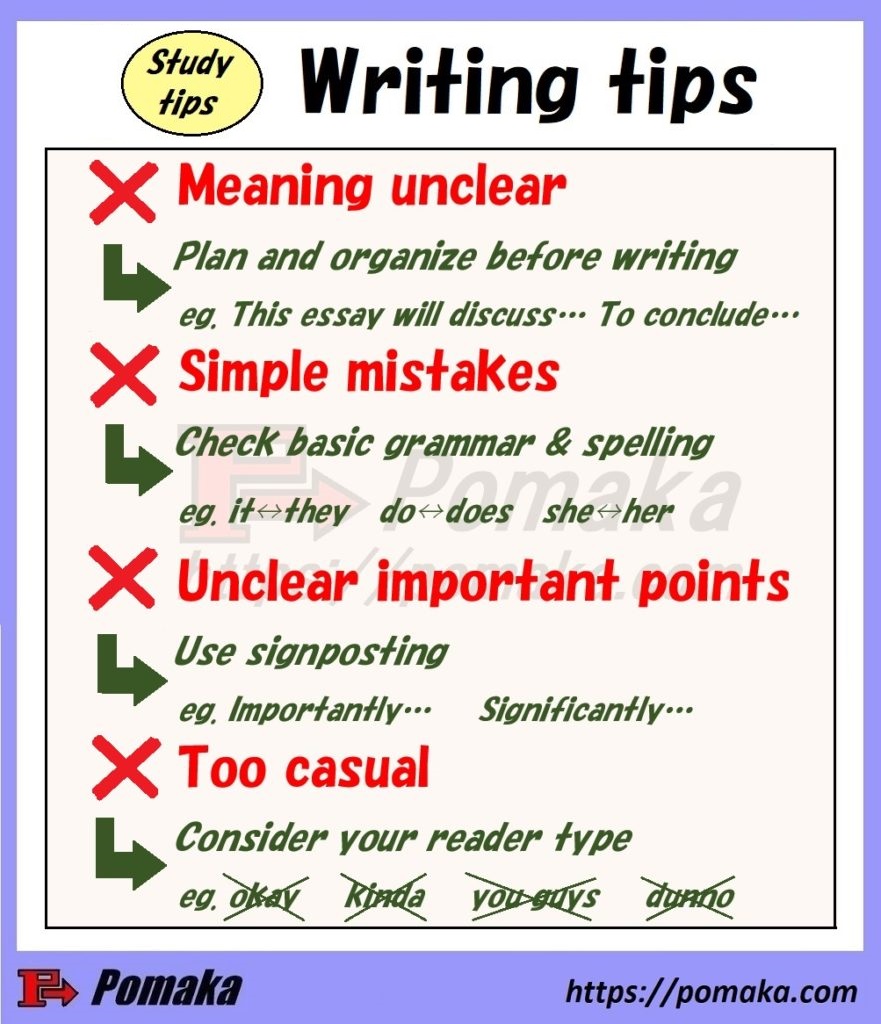Want to improve your writing?
Writing is different to speaking in many ways. It leaves a permanent record of your language so more people will likely see the things you write. This means you have to be more careful with your organization and accuracy (eg. grammar, spelling). You also have to think about the type of people you’re writing for and adjust your style accordingly. Based on my experiences with learner writing (and grading IELTS writing tasks for many years), I’ve briefly outlined some tips below.
Overall meaning unclear
Always plan before writing. Make time to think about the things you want to say. Think about how you want to explain or support your points. Even if it’s a writing test and you have limited time, it’s important to spend some of the time planning. How you organize your writing can also help. Different types of writing are often ordered in different ways. For example, in essays, key points are usually repeated at the end as a summary. But in business emails, the purpose of the mail is usually given at the beginning.
Continued below
Important points unclear
Be sure your key points are clear for the reader. Don’t assume the reader will automatically know which of your points are more important than others. Highlight your key points using words like “importantly”, “significantly”, or “interestingly.”
Basic mistakes
After finishing your writing, always check it carefully for basic spelling and grammatical mistakes. Even better, have someone else check it, too. Word processing software (eg. Microsoft Word) can help find mistakes for you (especially spelling) but it will often miss basic ones eg. you/your. Some websites and apps can also help you with your checking eg. Grammarly.
Continued below
Language too casual
Think about who will be reading your writing. Maybe it will be a customer reading your email. Maybe it will be a job interviewer reading your cover letter. Maybe it will a university professor reading your essay. Unless you’re writing a text to your friend or a blog (or maybe even a novel), writing is usually more formal than speaking. Avoid casual words like “okay” and contractions like “kinda” or “wanna.”
Writing difficult to read
Sometimes the layout or formatting can make your writing difficult to understand. Use paragraphing to separate your points. Double space your lines. Start each sentence with two blank spaces. Use a commonly used font type and size (eg. Times New Roman 12pt for an essay or research paper). Be extra careful with font types/sizes/colors for presentation slides.

Related links:
Having trouble with IELTS writing?
Recommended free online dictionaries (and apps)
How can I study for language tests?
